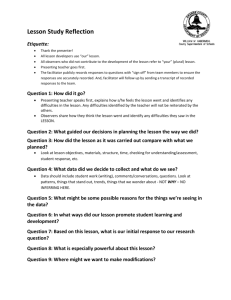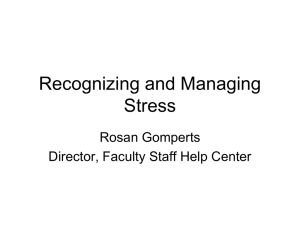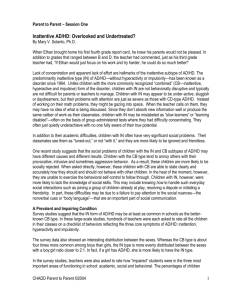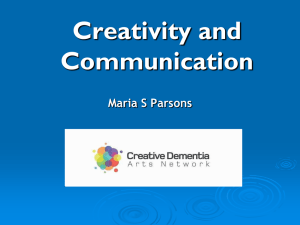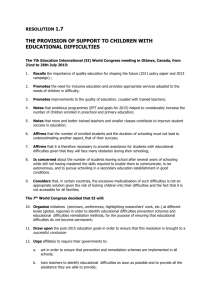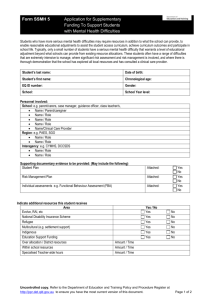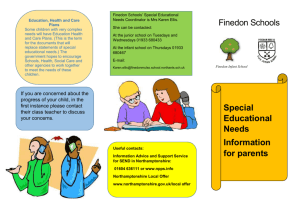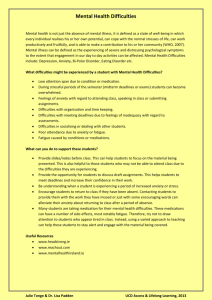Additional record of work1
advertisement
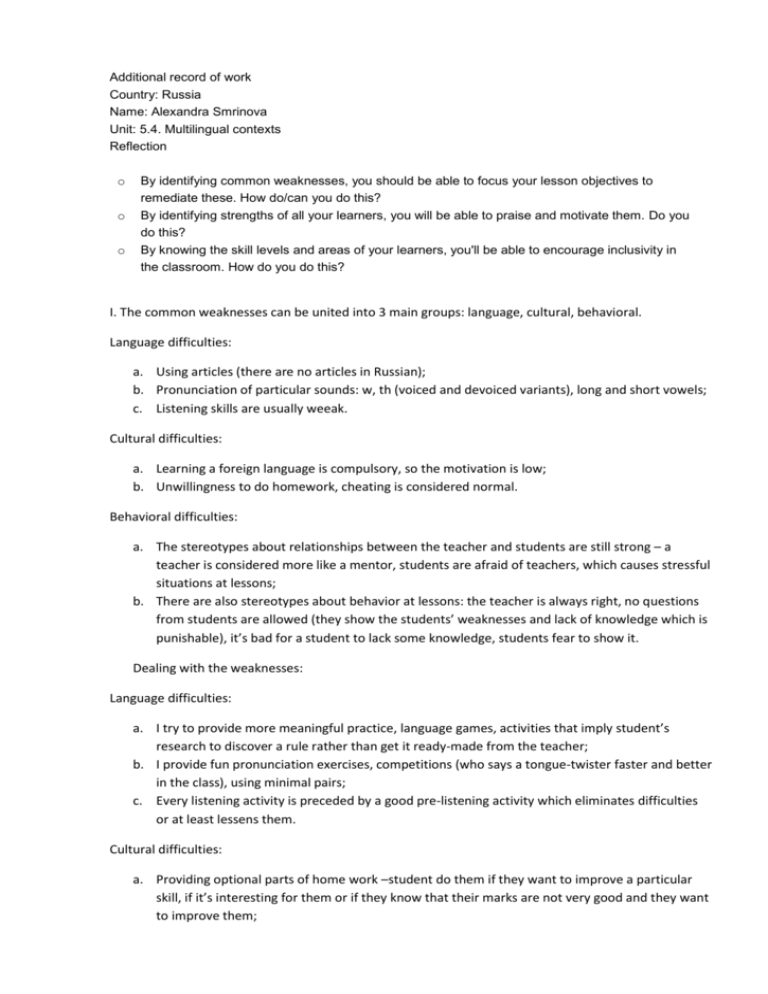
Additional record of work Country: Russia Name: Alexandra Smrinova Unit: 5.4. Multilingual contexts Reflection o o o By identifying common weaknesses, you should be able to focus your lesson objectives to remediate these. How do/can you do this? By identifying strengths of all your learners, you will be able to praise and motivate them. Do you do this? By knowing the skill levels and areas of your learners, you'll be able to encourage inclusivity in the classroom. How do you do this? I. The common weaknesses can be united into 3 main groups: language, cultural, behavioral. Language difficulties: a. Using articles (there are no articles in Russian); b. Pronunciation of particular sounds: w, th (voiced and devoiced variants), long and short vowels; c. Listening skills are usually weeak. Cultural difficulties: a. Learning a foreign language is compulsory, so the motivation is low; b. Unwillingness to do homework, cheating is considered normal. Behavioral difficulties: a. The stereotypes about relationships between the teacher and students are still strong – a teacher is considered more like a mentor, students are afraid of teachers, which causes stressful situations at lessons; b. There are also stereotypes about behavior at lessons: the teacher is always right, no questions from students are allowed (they show the students’ weaknesses and lack of knowledge which is punishable), it’s bad for a student to lack some knowledge, students fear to show it. Dealing with the weaknesses: Language difficulties: a. I try to provide more meaningful practice, language games, activities that imply student’s research to discover a rule rather than get it ready-made from the teacher; b. I provide fun pronunciation exercises, competitions (who says a tongue-twister faster and better in the class), using minimal pairs; c. Every listening activity is preceded by a good pre-listening activity which eliminates difficulties or at least lessens them. Cultural difficulties: a. Providing optional parts of home work –student do them if they want to improve a particular skill, if it’s interesting for them or if they know that their marks are not very good and they want to improve them; b. Providing variable home work (students can choose what kind of tasks they want to do – language training ones or creative ones); c. Providing interesting and meaningful home work (students should know why they do it, what skills it will help them to develop and improve); d. Self-assessment and peer-assessment (if there’s no prohibition to use the Keys, it becomes less interesting to cheat); e. Professional but trustful relationship with the teacher; f. Giving students control of the learning process, allowing them to participate in the planning process; g. Clear criteria, requirements and rules; h. Considering different learning styles and multiple intelligences of the students (I always monitor what multiple intelligences are dominating for each student and use the results of the monitoring when planning my lessons). Behavioral difficulties: a. b. c. d. Organizing lessons in a way that allows more students’ activity and talking time; Encouraging students’ questions, never ignoring them; Collaboration activities, lots of pair and group work; Allowing students to have a point of view different from the teacher’s one but they should justify it. I praise my students in the following situations: 1. If a student made a big effort which is obvious (even if s/he failed the task – in this case I allow to resubmit the task), e.g. “you’ve done a great job. But what, do you think, went wrong? Do you need help with it?” 2. If a student helped another student to understand something, explained something, helped to correct a mistake. 3. I ask students to praise their classmates, e.g. in group work: to name the students in the group who contributed most and were most helpful (note: not DID most of the work, but helped a lot). 4. For doing additional work which wasn’t compulsory; 5. For providing new ideas, for creativity. 6. For good results in something – but now I know that I actually shouldn’t do it often as it develops a certainty that intelligence is an inborn quality and they’ll always be right. Encouraging inclusivity: - Some students can perform the role of the teacher at some lesson stages; In pair work – students can peer-teach each other and peer-check; Appealing to their personal experience I different activities (e.g. speaking, project work); Allowing choice (e.g. providing 2 texts for home work – students can choose one which seems more interesting to them).
